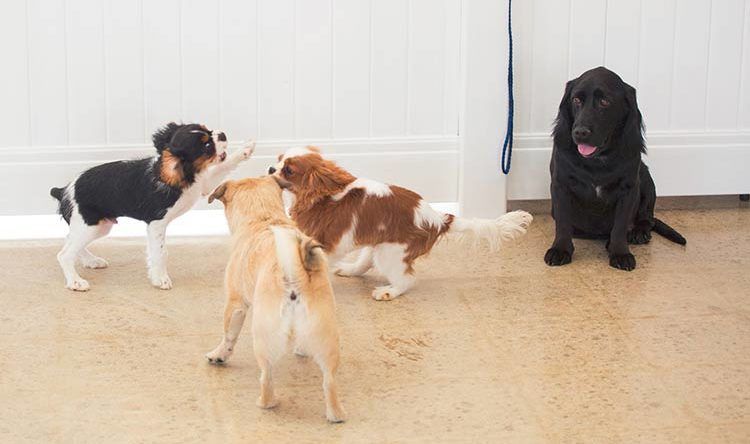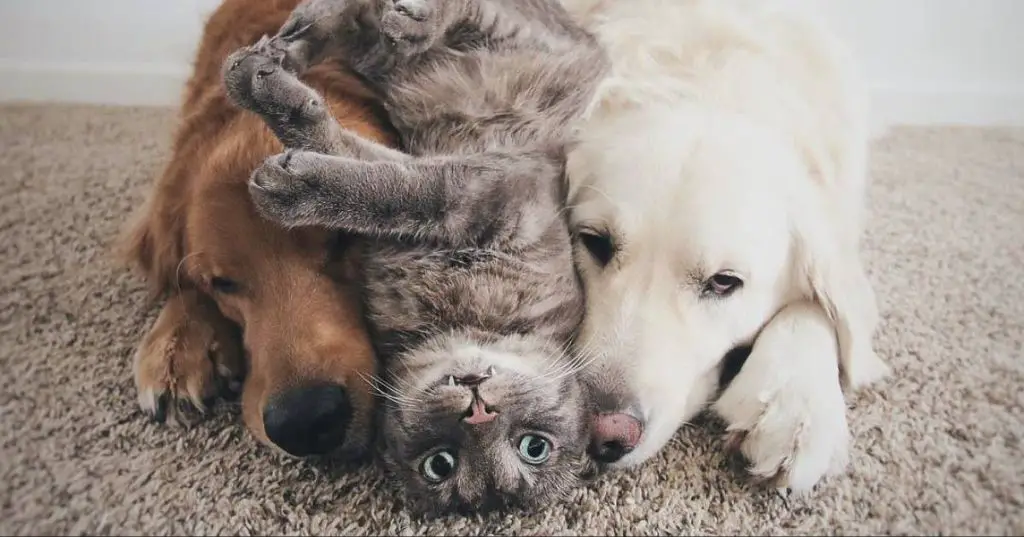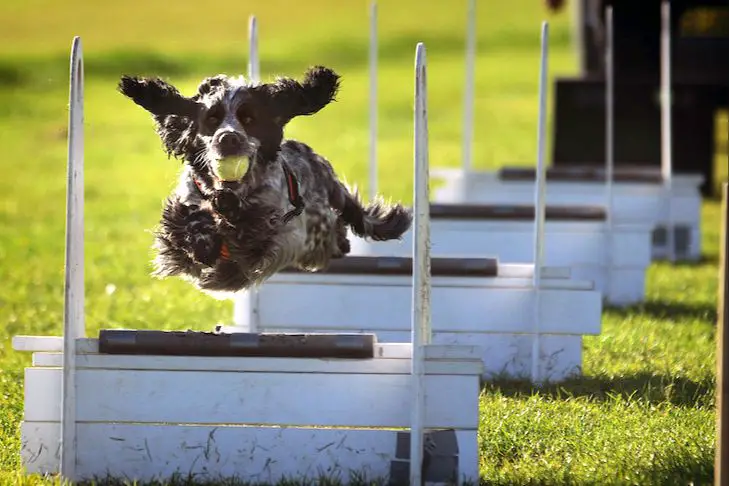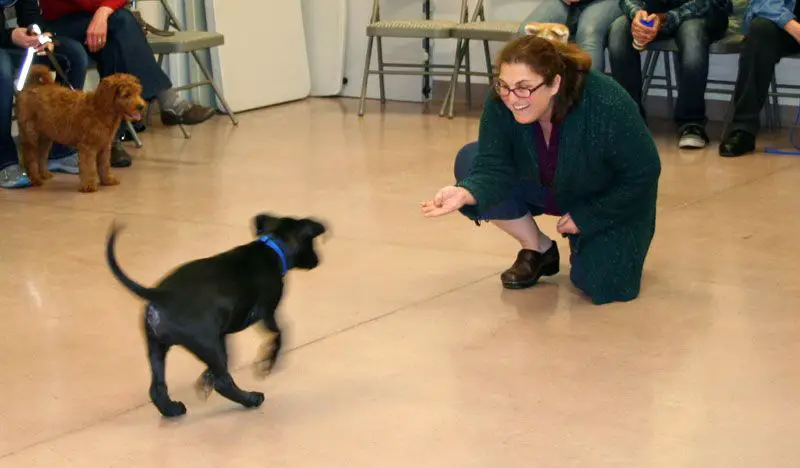Introduction
Socialization is one of the most important parts of raising a happy, well-adjusted dog. By regularly exposing puppies and adult dogs to new places, people, dogs, and experiences, owners can help build their confidence, improve their behavior, and prevent problem behaviors from developing.
There are many great places and ways to socialize your dog. Well-supervised interactions in varied environments will provide mental stimulation, exercise, and opportunities to practice social skills. With patience and positive reinforcement, socialization can be rewarding for both owners and dogs.
In this article, we will explore some of the top places to bring your dog to meet new friends, have fun, and continue socialization throughout their life.
Dog Parks
Dog parks can be a great place for socializing your dog and provide some key benefits. At a dog park, your dog gets to interact off-leash with other dogs and people in a safe, enclosed space. This allows them to burn energy, play, and learn how to communicate with unknown dogs. Regular visits help socialize your dog to be more comfortable and behave appropriately around other dogs and people.
However, there are also some risks of taking your dog to the dog park. Dog parks can overwhelm shy or fearful dogs. Poorly supervised parks may expose your dog to aggressive dogs or diseases. And dog parks don’t provide structured socialization – your dog may learn bad habits or play too roughly. Owners need to closely supervise their dog and ensure the park is clean and safe.
Daycare

One of the best places to socialize your dog is at a doggie daycare facility. Daycare provides dogs with regular opportunities to interact with other dogs and people in a supervised, stimulating environment. There are many pros and cons to consider when deciding if daycare is right for your pup.
Some of the pros of doggie daycare include:
- Socialization – Daycare allows dogs to play with other dogs and people all day, which is great for social development.
- Exercise – Dogs get to run, play, and burn energy in a safe, fenced environment.
- Supervision – Daycares are staffed to monitor dogs and ensure safe play.
- Routine – Daycare provides a consistent daily routine and stimulation for dogs.
Some potential cons of daycare include:
- Expense – Daycares can be costly, especially for large or multiple dogs.
- Overstimulation – Some dogs may get overexcited or exhausted from prolonged play and interaction.
- Illness – Dogs can pick up illnesses like kennel cough when mingling in groups.
- Injuries – Dogs playing together can sometimes get minor cuts or sprains.
Overall, a quality daycare with attentive staff can be an excellent option for socialization, but it’s not ideal for every dog or owner. Assess your specific needs to decide if it’s the right fit.
Group Training Classes
Group training classes can provide many benefits for socializing your dog. Being around other dogs and people in a controlled setting gets your dog used to politely interacting with strangers. It also allows your dog to learn basic obedience skills, like sit, stay, and come when called. With the guidance of a professional trainer, you’ll be able to reinforce these skills in a distraction-filled environment before trying them at home, at the park, or on walks.
That said, there are some potential drawbacks to be aware of. Group classes move at the pace of the whole class, which may be too fast or too slow for your individual dog. They also run the risk of exposing your puppy or unvaccinated dog to contagious diseases. Additionally, some classes allow flexible leash lengths, which can enable poor leash habits. Always find a class that requires short, 6-foot leashes to maintain control. Lastly, classes with more than 6-8 puppies can get chaotic, so look for smaller class sizes.
Friends’ Homes
Socializing your dog at friends’ houses can provide some great benefits. Your dog gets to explore a new environment and meet new people and animals in a more intimate, controlled setting than a big, open dog park. This allows your dog to have positive experiences and learn how to interact appropriately.

However, there are some risks to consider as well. Make sure any dogs at your friends’ house are up-to-date on vaccines and are dog-friendly. Supervise all interactions between dogs closely to avoid any fights or unwanted behavior. You’ll also want to “dog proof” the house by removing any toxic foods or small items your dog could choke on when unsupervised.
Additionally, be prepared to deal with accidents, barking or destructive behavior. Your friends may not appreciate your dog’s normal behaviors, so make sure to bring clean-up supplies just in case. With proper precautions, friends’ homes can provide a controlled setting for your dog to gain social skills.
Pet Stores
Many pet owners bring their dogs to pet stores for socialization. Pet stores provide a changing environment with lots of sights, sounds, and smells for dogs to experience. They also allow dogs to interact with store employees and shoppers. However, pet stores pose some risks.
On the plus side, the variety of items and people at pet stores exposes dogs to new things. The store setting gets dogs accustomed to handling interactions in close quarters. Store employees often greet and pet dogs, providing socialization with strangers. Dogs can also meet other shoppers and their pets in a controlled environment.
However, pet stores also have downsides for socialization. Not all dogs there are vaccinated or well-behaved. Sick dogs or dogs lacking social skills can create negative experiences. Shoppers may accidentally startle or crowd dogs. The unfamiliar setting and stimuli can sometimes overstimulate dogs. Owners must supervise closely and leave if issues arise.
Overall, pet stores provide some socialization benefits but require monitoring for safety. Owners should ensure positive interactions and not overwhelm their dog. Other venues like friends’ homes or daycare may provide socialization with less risk and stress.
Walking Routes
Taking your dog for walks in public areas is a great way to socialize them. The sights, sounds, and smells they experience on walks expose them to new things and help them learn to behave appropriately around strangers. When choosing a walking route, look for areas with light to moderate foot traffic so your dog can encounter people and other dogs without being overwhelmed.
Sidewalks and walking trails in your neighborhood are ideal for daily walks. See if your community has a “dog walking trail” specifically designed for pets. For more variety, drive to a different neighborhood, park, hiking trail, or downtown area. Switch up the route often so it’s always an exciting new adventure for your pup. Bring treats to reward calm, polite behavior when encountering people or distractions. With positive experiences walking in public, your dog will become a well-socialized canine citizen.
Dog Sporting Events
Dog sporting events are a great way to socialize your pup in a fun, engaging environment. Here are some of the most popular types of sporting events for dogs:

Agility – This fast-paced event has dogs navigating an obstacle course with jumps, tunnels, teeter-totters and weave poles. It builds confidence, focus and bonding between handler and dog.
Dock Diving – Dogs run down a dock and leap into a pool competing for distance and height. This is ideal for dogs that love swimming and playing fetch.
Flyball – Teams of dogs race against each other, jumping over hurdles to trigger a flyball box to release a tennis ball they catch and bring back. This is a great social event that burns energy.
Frisbee – Dogs compete at catching frisbees and performing choreographed routines and dances with their handler. This sport enhances obedience, coordination and fitness.
The benefits of participating in dog sporting events include:
– Socialization with new people and dogs in a fun, engaging setting.
– Mental stimulation from learning new routines and tasks.
– Physical exercise and fitness from all the running and jumping.
– Strengthening the bond between handler and dog through training and teamwork.
– Providing an outlet for a dog’s energy, focus and instincts.
– Building confidence in shy or fearful dogs.
Overall, dog sporting events are a great way to socialize and enrich your dog’s life through play and teamwork!
Puppy Kindergarten

Puppy kindergarten is a type of dog training class specifically designed for puppies under 6 months old. The main focus of puppy kindergarten is early socialization and basic manners training in a structured environment. Puppies start these classes at 8-12 weeks old and attend once a week for 4-6 weeks.
The controlled setting of a puppy kindergarten class provides many benefits for socialization during the critical early months of a dog’s life. Puppies get to interact with new dogs and people in a positive way. They are exposed to a variety of sights, sounds, and experiences to help prevent fear and anxiety later on. The classes also teach puppies how to politely greet and play with other dogs. Additionally, owners learn how to properly supervise dog-dog interactions to prevent bullying. With positive reinforcement training techniques, puppies in kindergarten classes begin building skills like loose leash walking, attention, simple commands, and handling exercises.
Overall, puppy kindergarten supports healthy social development through supervised play and training. The classes set puppies up for success by teaching good manners and giving them a strong foundation in training and socialization.
Conclusion
In summary, the best places to properly socialize your dog include dog parks, daycare facilities, group training classes, friends’ homes with dogs, pet stores, walking routes with people, dog sporting events, and puppy kindergarten classes.
It’s crucial to expose your dog to a variety of people, dogs, animals, sights, sounds, and environments during the key socialization period from 3 to 16 weeks old. Proper socialization helps prevent behavior problems and allows your dog to be comfortable in different situations. With patience and positive reinforcement, you can help your dog become a friendly and confident member of society.